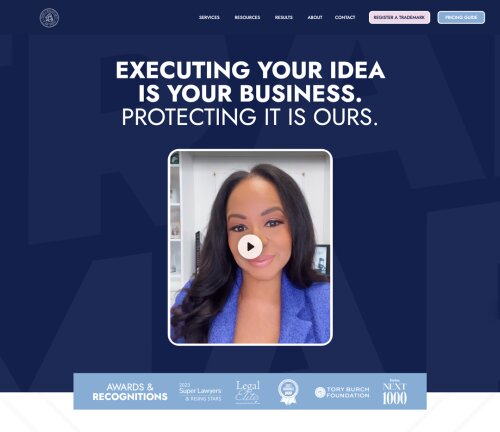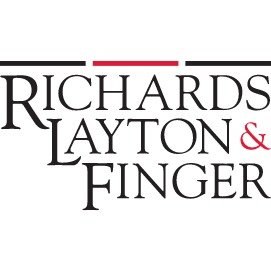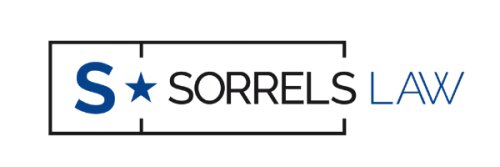Best FDA Law Lawyers in United States
Share your needs with us, get contacted by law firms.
Free. Takes 2 min.
Or refine your search by selecting a city:
List of the best lawyers in United States
About FDA Law in United States
FDA law in the United States refers to the network of federal statutes, regulations, and guidelines that govern the Food and Drug Administration’s oversight of food, drugs, medical devices, cosmetics, tobacco products, and other products that affect public health. The FDA is tasked with ensuring the safety, efficacy, and security of these products before and after they enter the market, while also regulating labeling, advertising, and manufacturing practices. Over the years, FDA law has expanded to cover emerging fields such as biotechnology, dietary supplements, and digital health technologies. Compliance with FDA regulations is mandatory for companies who manufacture, import, distribute, or sell regulated products within the United States.
Why You May Need a Lawyer
There are many situations where legal help with FDA law becomes necessary. Businesses and individuals may face challenges understanding complex regulatory requirements, ensuring compliance, or responding to FDA inspections and enforcement actions. Some common scenarios include:
- Launching a new drug, device, food, or dietary supplement and needing approval or notification
- Facing warning letters, import alerts, or product recalls initiated by the FDA
- Dealing with compliance issues regarding labeling, advertising, or manufacturing practices
- Navigating clinical trial requirements and submissions
- Requesting guidance on premarket notifications, clearances, or approvals
- Responding to FDA investigations, inspections, or civil or criminal enforcement actions
- Seeking to import or export FDA regulated products
- Defending against claims of misbranding, adulteration, or violations of FDA regulations
An experienced FDA lawyer can help you interpret the law, develop compliance strategies, and represent your interests before the agency.
Local Laws Overview
Key aspects of US laws related to FDA regulation revolve primarily around several core statutes including the Federal Food, Drug, and Cosmetic Act (FD&C Act), the Public Health Service Act, and laws relating to controlled substances, tobacco, and biologics. These statutes empower the FDA to implement rules that cover:
- Premarket approval and review of drugs and medical devices
- Food safety standards for domestic and imported foods
- Labeling requirements for consumer products
- Good Manufacturing Practice (GMP) and quality systems
- Adverse event reporting and recall procedures
- Investigations and enforcement powers, including inspection of facilities
- Penalties for violations, such as fines, product seizures, and criminal prosecution
In addition to federal law, businesses must often consider state requirements and cooperation with state regulators. FDA law is subject to frequent updates, industry-specific rules, and detailed guidance documents. Keeping up to date with these requirements is vital for legal compliance and business continuity.
Frequently Asked Questions
What is the FDA and what authority does it have?
The Food and Drug Administration is a federal agency within the Department of Health and Human Services. It has the authority to regulate the safety and effectiveness of food, drugs, medical devices, cosmetics, tobacco products, and certain other products. This includes premarket approval, inspections, recalls, labeling, and advertising oversight.
When does a product require FDA approval?
Products such as prescription drugs, certain medical devices, and some biologics typically require FDA approval before they can be sold in the United States. Other products, like dietary supplements and foods, do not generally require premarket approval but must comply with specific standards and may require notification or registration.
What happens during an FDA inspection?
The FDA may inspect manufacturing facilities to ensure compliance with applicable regulations. Inspectors will review records, examine processes and equipment, and identify any potential violations. If issues are found, the agency may issue Form 483 observations, warning letters, or initiate enforcement actions.
What are common FDA enforcement actions?
Enforcement actions include warning letters, product seizures, injunctions, fines, recalls, import bans, and, in serious cases, criminal prosecution. The specific action taken depends on the nature and severity of the violation.
How should I respond to an FDA warning letter?
A warning letter signals that significant violations have been observed. It is important to respond promptly, thoroughly, and in writing, addressing each cited violation and detailing corrective actions. Legal counsel can help you develop an effective response plan.
Are there requirements for product labeling and advertising?
Yes, all FDA-regulated products must comply with detailed labeling laws, ensuring that statements are truthful, not misleading, and consistent with product approvals. Claims made in advertising are also regulated, especially for drugs, devices, and food products.
Can I import FDA-regulated products into the US?
Yes, but importers must ensure that their products comply with all applicable FDA standards, including proper registration, labeling, and safety regulations. The FDA and Customs and Border Protection (CBP) work together to regulate imports, and noncompliant goods may be detained or refused entry.
What are Good Manufacturing Practices (GMPs)?
GMPs are regulations that outline the minimum requirements for manufacturing, processing, and packing FDA-regulated products. The goal is to ensure safety, quality, and purity. Businesses must establish robust quality control systems and documentation.
How do I report an adverse event with an FDA-regulated product?
Manufacturers, healthcare professionals, and consumers can report adverse events or problems to the FDA through the MedWatch program or the appropriate reporting system for the specific product type.
How can an FDA lawyer help my business?
An FDA lawyer can provide strategic advice on compliance, help prepare submissions or responses to the FDA, represent clients during inspections, enforcement actions, and litigation, and keep businesses informed of regulatory changes that may impact their operations.
Additional Resources
If you need more information or wish to contact regulatory authorities, these resources can be helpful:
- US Food and Drug Administration (FDA)
- FDA Consumer Complaint System
- FDA MedWatch for adverse event reporting
- Food and Drug Law Institute (FDLI)
- State health and agriculture departments
- US Customs and Border Protection (CBP) for import issues
- Professional trade associations relevant to your product type
- Legal aid organizations specializing in public health and regulatory law
Next Steps
If you believe you need legal assistance related to FDA law, the following steps can help you move forward:
- Document any communications or notices received from the FDA or other regulators
- Gather relevant records such as product information, manufacturing processes, or prior submissions
- Research and consult with attorneys experienced in FDA law and your specific product area
- Request an initial consultation to discuss your situation and explore your legal options
- Stay up to date on FDA news, recalls, and regulatory updates
- Implement or review internal compliance programs to reduce the risk of future violations
Taking timely action and securing qualified legal counsel can help protect your interests and ensure full compliance with FDA requirements.
Lawzana helps you find the best lawyers and law firms in United States through a curated and pre-screened list of qualified legal professionals. Our platform offers rankings and detailed profiles of attorneys and law firms, allowing you to compare based on practice areas, including FDA Law, experience, and client feedback.
Each profile includes a description of the firm's areas of practice, client reviews, team members and partners, year of establishment, spoken languages, office locations, contact information, social media presence, and any published articles or resources. Most firms on our platform speak English and are experienced in both local and international legal matters.
Get a quote from top-rated law firms in United States — quickly, securely, and without unnecessary hassle.
Disclaimer:
The information provided on this page is for general informational purposes only and does not constitute legal advice. While we strive to ensure the accuracy and relevance of the content, legal information may change over time, and interpretations of the law can vary. You should always consult with a qualified legal professional for advice specific to your situation.
We disclaim all liability for actions taken or not taken based on the content of this page. If you believe any information is incorrect or outdated, please contact us, and we will review and update it where appropriate.
Browse fda law law firms by state in United States
Refine your search by selecting a state.
















